Hypnotherapy for Cocaine Cravings: A Complementary Approach to Addiction Recovery
Cocaine Addiction

Imagine a young professional named John whose life spiralled out of control due to cocaine addiction. Despite multiple attempts at traditional treatments, John struggled to manage his cravings, jeopardising his career and relationships. His story is not unique; according to the National Institute on Drug Abuse, over 1.5 million Americans were reported to be current users of cocaine in 2020. This journey to sobriety can be incredibly challenging, with cravings often leading to relapse.
While conventional treatments are essential, many individuals are turning to Hypnotherapy as a complementary approach to aid in their recovery from cocaine addiction. Hypnotherapy offers a unique method for managing cravings by tapping into the subconscious mind, providing an additional tool in the fight against addiction.
Overview: In this blog post, we explore:
- Understanding Cocaine Addiction: A look at what cocaine addiction entails and the challenges it presents.
- Introduction to Hypnotherapy: An overview of what Hypnotherapy is and its general application in addiction treatment.
- How Hypnotherapy Helps with Cocaine Cravings: An explanation of the mechanisms behind Hypnotherapy and its effectiveness in managing cravings.
4. Integrating Hypnotherapy into a Comprehensive Treatment Plan: Tips on combining Hypnotherapy with traditional treatments and finding a qualified hypnotherapist.
By the end of this post, you'll have a clearer understanding of how Hypnotherapy can play a pivotal role in complementing traditional treatments for cocaine addiction, potentially paving the way for a more holistic and practical recovery journey.
What is Cocaine Addiction?
Cocaine addiction is a chronic disorder requiring ongoing support and treatment. It is characterised by a compulsive urge to use cocaine despite adverse consequences. Cocaine, a powerful stimulant drug produced from the coca plant, creates a short-lived yet intense high that leads to a cycle of repeated use.
When consumed, cocaine enters the bloodstream and affects the brain's reward system by increasing "Dopamine, a chemical in your brain, is associated with feelings of pleasure and reward." This surge of dopamine produces the euphoric effects that users crave, but it also disrupts the brain's natural chemical balance, leading to dependency.
The Challenges of Overcoming Cocaine Addiction
Breaking free from cocaine addiction is notoriously tricky. Dealing with the intense cravings and withdrawal symptoms can be challenging. Accompany cessation. Some of the common withdrawal symptoms include:
- Fatigue and exhaustion
- Increased appetite
- Depression and anxiety
- Sleep disturbances
- Irritability and agitation
These symptoms make it incredibly challenging for individuals to maintain sobriety, often leading to relapse.
The emotional toll of cocaine addiction can be devastating. Individuals may experience profound feelings of guilt, shame, and hopelessness. Relationships with family and friends often suffer as trust is eroded and conflicts arise. The social consequences can include job loss, financial difficulties, and legal problems, further complicating recovery.
In addition to these emotional and social impacts, individuals recovering from cocaine addiction face significant psychological and physical challenges. The drug's effect on the brain can result in long-lasting changes to mood, behaviour, and cognitive function, making it hard to resist the urge to use it again.
Physically, prolonged cocaine use can lead to serious health issues like cardiovascular problems, respiratory issues and neurological damage.
This is where complementary therapies like Hypnotherapy can play a vital role in managing cravings and supporting long-term recovery.
Introduction to Hypnotherapy
What is Hypnotherapy?
Hypnotherapy involves the use of deep relaxation techniques, concentrated focus, and heightened attention to induce a state of heightened awareness referred to as a trance, which can help them change certain behaviours or perceptions.
The practice of hypnotherapy dates back to ancient times, but it gained modern recognition in the 18th century from Franz Mesmer, an Austrian physician who explored the therapeutic potential of what he termed "animal magnetism." Hypnosis as we understand it today was further developed in the 19th and 20th centuries, with notable contributions from figures like James Braid, Sigmund Freud, and Milton Erickson.
Hypnotherapy bypasses the conscious mind, where deeply ingrained habits and patterns reside. A hypnotherapist guides the individual into a trance state and provides positive suggestions aimed at altering unwanted behaviours or thoughts. This can help individuals overcome everything from worries and fears to dealing with pain and overcoming habits.
It's important to debunk common myths about hypnosis, such as the misconception that it involves mind control or loss of consciousness. In reality, individuals remain aware and in control during hypnotherapy sessions, making their own choices and maintaining their agency throughout the process.
Hypnotherapy in Addiction Treatment
Hypnotherapy plays a significant role in addiction treatment by addressing the underlying psychological factors contributing to substance abuse. In the context of cocaine addiction, Hypnotherapy can help individuals manage cravings, reduce anxiety, and build healthier coping mechanisms.
Several addictions have been effectively treated with Hypnotherapy, including:
- Alcohol Addiction: Hypnotherapy can help reduce the desire to drink and support abstinence.
- Nicotine Addiction: Many people have used Hypnotherapy to quit smoking by changing their perceptions and habits around tobacco use.
- Opioid Addiction: Hypnotherapy can assist in managing withdrawal symptoms and reducing the psychological dependency on opioids.
By integrating Hypnotherapy, individuals can address both the mental and physical aspects of addiction. This complementary therapy provides an additional tool for managing cravings and supporting long-term recovery.
How Hypnotherapy Helps with Cocaine Cravings
Mechanisms of Hypnotherapy for Cravings
Hypnotherapy helps manage cocaine cravings by targeting the subconscious mind, where many of our deep-seated habits and behaviours are formed.
Techniques Used in Hypnotherapy to Manage Cravings:
- Suggestion Therapy: This involves making specific suggestions to the subconscious mind aimed at reducing cravings and promoting sobriety. For example, the hypnotherapist might suggest that the individual feels calm and in control whenever they experience a craving.
- Imagery and Visualisation: The hypnotherapist may use guided imagery to help the individual visualise themselves successfully, resisting cravings and living a cocaine-free life. This technique helps create a solid mental image of success, reinforcing positive behaviour.
- Cognitive Restructuring: This involves changing the way an individual thinks about cocaine and their relationship with it. By altering negative thought patterns and replacing them with positive ones, Hypnotherapy can help weaken the hold of cravings.
It's important to debunk common myths about hypnosis, such as the misconception that it involves mind control or loss of consciousness. In reality, individuals remain aware and in control during hypnotherapy sessions, making their own choices and maintaining their agency throughout the process (ChoosingTherapy.com) (www.floridanpg.com).
Case Studies and Success Stories
Real-life examples and testimonials provide robust evidence of the effectiveness of Hypnotherapy for managing cocaine cravings.
Real-Life Examples:
- Case Study 1: Jane, a 35-year-old woman struggling with cocaine addiction, turned to Hypnotherapy after multiple failed attempts with traditional treatments. Through Hypnotherapy, Jane was able to manage her cravings more effectively and build new coping strategies. After six months of regular sessions, she reported a significant reduction in cravings and has maintained sobriety for over a year.
- Case Study 2: Michael, a 42-year-old man with a long history of cocaine use, found that Hypnotherapy helped him address the underlying emotional triggers of his addiction. By working with a hypnotherapist, Michael learned to manage stress and anxiety. His success story highlights the potential for Hypnotherapy to support emotional and psychological healing.
Testimonials and Expert Opinions:
- Testimonial 1: "Hypnotherapy has been a game-changer for me. I was skeptical at first, but after just a few sessions, I noticed a significant decrease in my cravings. It helped me regain control of my life." - Sarah, former cocaine addict.
- Expert Opinion: Dr Laura Adams, a psychologist specialising in addiction treatment, states, "Hypnotherapy can be a valuable tool in the addiction recovery toolkit. It addresses the subconscious mind, which is often where the roots of addiction lie. By changing deep-seated patterns, Hypnotherapy can support lasting recovery" (ChoosingTherapy.com) (FindCare) (www.floridanpg.com).
By showcasing these case studies and testimonials, we can see the actual impact hypnotherapy can have on individuals struggling with cocaine cravings. This complementary approach offers hope and a pathway to recovery for many.
Integrating Hypnotherapy into a Comprehensive Treatment Plan
Combining Hypnotherapy with Traditional Treatments
Hypnotherapy can be a great complement to traditional therapy." addiction treatments enhance the overall effectiveness of a comprehensive recovery plan. Here's how it complements other approaches:
Counselling and Psychotherapy: Hypnotherapy can work alongside cognitive-behavioural therapy (CBT) and other forms of counselling by addressing subconscious patterns and reinforcing the cognitive changes made during therapy sessions. It helps deepen the therapeutic work done in a conscious state, making the overall treatment more effective.
Medication-Assisted Treatment (MAT): For individuals using medications to manage withdrawal symptoms and cravings, Hypnotherapy can support these efforts by reducing the psychological reliance on substances and helping to manage anxiety and stress.
Support Groups: Hypnotherapy can enhance the benefits of peer support groups such as Narcotics Anonymous (NA) by helping individuals internalise the principles of these programs and stay motivated in their recovery journey. The positive suggestions given during hypnotherapy sessions can reinforce the behavioural changes encouraged in support groups.
Finding a Qualified Hypnotherapist
Choosing a reputable and certified hypnotherapist is crucial for ensuring effective treatment. Here are some tips on how to find a qualified practitioner in Australia:
Check Credentials: Look for hypnotherapists registered with reputable organisations such as the Australian Society of Clinical Hypnotherapists (ASCH) or the Hypnotherapy Council of Australia (HCA). These registrations ensure that the hypnotherapist has received proper training and adheres to professional standards.
Verify Experience: Ensure that the hypnotherapist has experience specifically in addiction treatment. Ask about their track record and request testimonials or references from former clients to gauge their effectiveness.
Consultation: Set up a first meeting to discuss your specific needs and expectations. Use this opportunity to assess the therapist's approach and ensure that you feel comfortable with their style and methods.
Questions to Ask: During your consultation, consider asking the following questions:
- What is your experience with treating addiction using Hypnotherapy?
- What kind of success rates have you had with other clients?
- What is the structure of your hypnotherapy sessions?
- How long do you expect the treatment to last?
What to Expect in Hypnotherapy Sessions:
- Initial Assessment: The first session usually involves an assessment of your addiction history, current struggles, and treatment goals.
- Induction Phase: Each session typically begins with an induction phase, where the hypnotherapist guides you into a relaxed, trance-like state.
- Suggestion Phase: Once in the trance state, the hypnotherapist will make positive suggestions aimed at altering your subconscious behaviours and thought patterns related to addiction.
- Awakening Phase: The session concludes with the hypnotherapist guiding you back to full awareness, feeling refreshed and relaxed.
- Follow-Up: Subsequent sessions will build on the progress made, with the hypnotherapist adjusting suggestions to address new challenges or reinforce previous gains.
By integrating Hypnotherapy with traditional treatments and finding a qualified hypnotherapist, individuals in Australia and overseas can create a robust, comprehensive approach to overcoming addiction. This holistic strategy increases the chances of long-term success and a healthier, addiction-free life.
Throughout this blog post, we've explored the multifaceted role of Hypnotherapy in addiction recovery. We began by understanding the nature of addiction and the challenges it poses. We then delved into what Hypnotherapy is, its history, and how it works by targeting the subconscious mind. We looked at specific techniques used in Hypnotherapy to manage cravings and showcased real-life examples and testimonials of its effectiveness. Finally, we discussed how Hypnotherapy can be integrated into a comprehensive treatment plan, complementing traditional methods such as counselling, medication, and support groups. We also offered guidance on finding a qualified hypnotherapist in Australia.
If you or someone you know is struggling with addiction, consider incorporating Hypnotherapy into your recovery plan. This complementary approach can provide additional support in managing cravings and addressing the psychological aspects of addiction. Seek professional help to explore how Hypnotherapy can enhance your journey toward recovery. To start your journey, you can book a session with a qualified hypnotherapist today.
Final Thoughts: Remember, overcoming addiction is not just about addressing the physical dependency but also the psychological and emotional challenges. A supportive network and a comprehensive treatment plan that includes various therapeutic approaches are crucial for successful recovery.
Hypnotherapy offers a unique and effective tool in this process, helping individuals build resilience and achieve long-term sobriety.
For further reading on related topics, you can check out these informative blog posts:
- Understanding Hypnosis and Treating Addictions
- Overcoming Addictions: A Comprehensive Look at the Top 10 Common Addictions
- Hypnosis to Quit Smoking


















